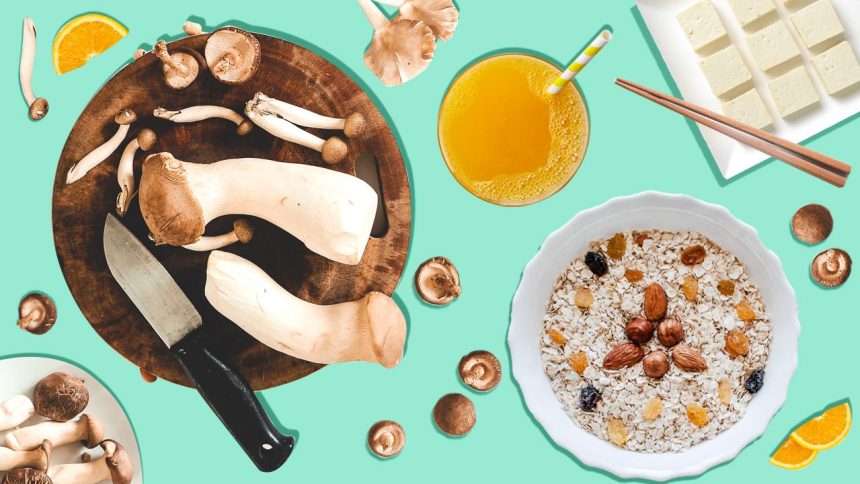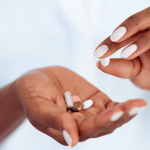Vitamin D-rich foods such as salmon, egg yolks and shellfish are not suitable for vegetarians. Even vegetarians can struggle to get enough vitamin D. One study found that 41.6% of Americans may be vitamin D deficient.
In this article, we’ll look at the best sources of vitamin D, the benefits of supplementation, and how to optimize your intake of this important vitamin.
Why do we need vitamin D?
The main function of vitamin D is to help the body absorb calcium and phosphorus from food. Both of these minerals are important for maintaining bone health. People who do not get enough vitamin D are at increased risk of weak bones and fractures.
Vitamin D is also necessary for the immune system to work well. A 2011 study showed that vitamin D deficiency was associated with an increased risk of autoimmune and infectious diseases.
A 2013 study in Reliable Sources found that people with low vitamin D levels may have a higher risk of depression than people with healthy vitamin D levels. There is some evidence that vitamin D may play a role in cancer prevention, but the research is inconclusive. There is some evidence that vitamin D may reduce the risk of heart disease, but more research is needed.
Supplement 101: Vitamin D
Meat sources of vitamin D
Your body can also produce it if you get it from different food sources. When you expose your skin to the sun, your body has the ability to convert cholesterol into vitamin D, which also acts as a hormone.
Most of the foods with the highest vitamin D content come from animal sources. However, there are good sources of this vitamin suitable for vegetarians.
Vitamin D levels may be reported in micrograms (µg or µg) or international units (IU). Here are the best vegetarian sources of vitamin D.
Soy milk
One cup of vitamin D-fortified soy milk contains about 2.9 milligrams (116 IU) of vitamin D. Before buying branded soy milk, check the label to see if it contains vitamin D. Unhealthy brands are very low in vitamin D.
Mushroom
Mushrooms are one of the few animal sources rich in vitamin D. Mushrooms grown in the dark may not contain as much vitamin D. However, mushrooms exposed to UV light during cultivation can contain about 450 IU per 100 grams.
Mushrooms contain vitamin D-2 and animal foods contain vitamin D-3. According to reliable research sources, vitamin D-2 may not be as active as vitamin D-3, but it can increase vitamin D levels.
Plenty of grain
Many breakfasts cereal and oatmeal brands that are fortified with vitamin D usually list this vitamin in their nutrition information. The amount of vitamin D in fortified cereals varies by brand. They usually range in a dose of 0.2 to 2.5 mg (8 100 100 IU).
Thick orange juice
Not all orange juice is fortified with vitamin D, but stronger brands contain 2.5 mg (100 IU) per serving. Juices fortified with vitamin D usually state this on the package.
Rich rice milk
Vitamin D fortified rice milk contains about 2.4 mg (96 IU) per serving. Some brands may fortify their rice milk with other nutrients such as vitamin A and vitamin B-12.
Day light
For most people, 10 to 30 minutes of sun exposure three times a week is enough. However, dark-skinned people need more time in the sun for the same effect than fair-skinned people.
Try to limit your sun exposure, as prolonged sun exposure can damage your skin, cause sunburn and increase your risk of skin cancer.

What about additives?
For vegetarians, vitamin D supplements are another way to increase your intake of this vitamin. For better vitamin D absorption, it is recommended to take a vitamin D supplement with food. Fatty foods such as avocados, nuts and seeds help increase the absorption of vitamin D into the blood.
An authoritative source study found that people who took vitamin D-3 supplements with a high-fat diet had 32% higher vitamin D blood levels after 12 hours than those who ate a low-fat diet.
Symptoms of vitamin D deficiency
Some symptoms of vitamin D deficiency include:
- Weak immune system
- weak bones
- Depression
- Fatigue
- Slow wound healing
- Hair loss
Conclusion
Getting enough vitamin D can be difficult for vegetarians, but there are animal-free ways to increase your intake. A daily vitamin D supplement can help improve your levels. Exposing your skin to sunlight increases your body’s natural production of vitamin D.











